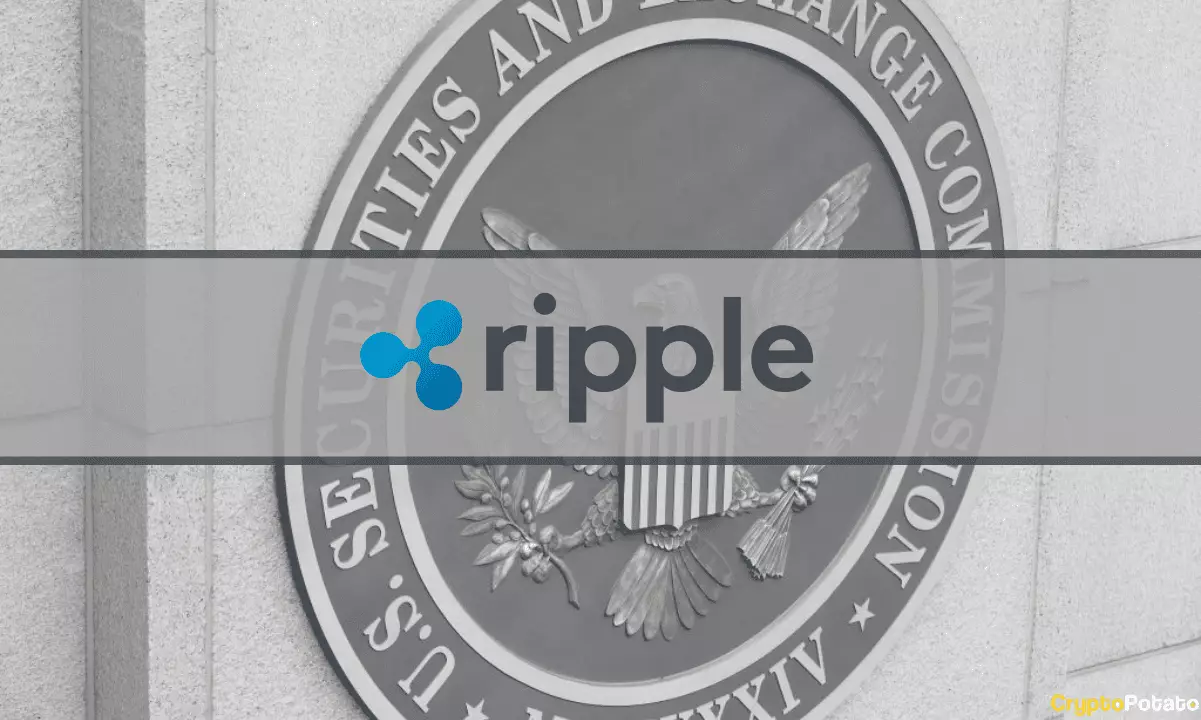The ongoing legal battle between the U.S. Securities and Exchange Commission (SEC) and Ripple Labs has captured the attention of the cryptocurrency community and financial markets itself. At the core of this dispute lies the classification of Ripple’s XRP token—whether it should be categorized as a security under U.S. law. On October 2, 2023, the SEC announced an appeal against a previous ruling by Judge Analisa Torres, which had determined that secondary sales of XRP did not constitute securities transactions. This classification was based on the outcome of the seminal Howey test, which evaluates whether certain transactions qualify as “investment contracts.”
The complexity of this case underscores broader concerns regarding regulatory oversight in the cryptocurrency space. Unlike traditional financial instruments, cryptocurrencies often inhabit a gray area that regulatory bodies, including the SEC, are struggling to define. This lack of clear regulations has prompted calls for enhanced clarity and fairness in treating digital assets.
Following the SEC’s announcement of its appeal, key figures at Ripple swiftly expressed their disappointment and frustration. Stuart Alderoty, Ripple’s Chief Legal Officer, asserted that this move merely extends what he termed “a complete embarrassment for the agency.” His remarks point to the growing sentiment that the SEC’s efforts against Ripple—and, by extension, the crypto industry—are unfounded and detrimental. Alderoty highlighted the court’s previous rejection of claims regarding Ripple’s alleged recklessness, emphasizing a lack of fraud allegations and victim losses. This underscores the argument that the SEC’s position might be more about punitive regulation than genuine investor protection.
Ripple’s CEO, Brad Garlinghouse, took to social media to voice his stance, emphasizing the legal status of XRP as a non-security, a classification that remains unchanged despite the SEC’s continued litigation. His determination to continue fighting this legal battle not only reflects Ripple’s resilience but also reveals the deep-seated tensions between regulatory bodies and innovative sectors such as cryptocurrency.
The Political Landscape and Public Response
The appeal has garnered attention beyond the cryptocurrency community, spilling over into the political arena. John Deaton, a candidate for Massachusetts Senator, publicly criticized the SEC, highlighting his personal investment of time and money into fighting the agency’s overreach. His involvement illustrates how regulatory cases have far-reaching effects, impacting individuals at various levels of legal engagement. Deaton’s remarks also serve to symbolize growing frustrations among crypto advocates who feel that regulatory actions impede technological advancement in the space.
In recent years, the political discourse surrounding cryptocurrencies has increasingly turned adversarial, often breaking along party lines. The outcome of cases like this one may set precedents for how digital assets are treated in the future, potentially influencing legislation and regulation across the board.
XRP holders reacted sharply to the SEC’s appeal, leading to a decrease in the token’s market value. A significant 12% drop within a day demonstrates the volatile nature of cryptocurrencies, where market sentiment can pivot dramatically based on regulatory news and developments. This sell-off culminated in XRP dipping below $0.53, marking a three-week low, while still being 84% below its all-time high reached in January 2018.
The market’s reaction to regulatory developments serves as a harsh reminder of the uncertainties faced by investors in the cryptocurrency sector. It raises crucial questions: How will regulations shape the future of digital currencies? What impact will this case have on new crypto projects and their ability to launch? What does this mean for investor confidence moving forward?
The SEC’s appeal in the Ripple case stands as a watershed moment not just for Ripple but for the entire cryptocurrency ecosystem. As stakeholders with vested interests navigate this tumultuous landscape, the implications of this legal battle may resonate well beyond the courtrooms. Assertions from Ripple’s leadership suggest a fortified resolve against regulatory overreach, leading to a potential shift in how other crypto firms may approach compliance and legal challenges in the future.
Ultimately, the outcome of this appeal may serve as a litmus test for regulatory actions in the crypto space, affecting investor confidence, market dynamics, and the broader acceptance of digital currencies. The eyes of the world remain fixed on this legal confrontation as it unfolds, demonstrating the volatile interplay between innovation and regulation in an ever-evolving financial landscape.

